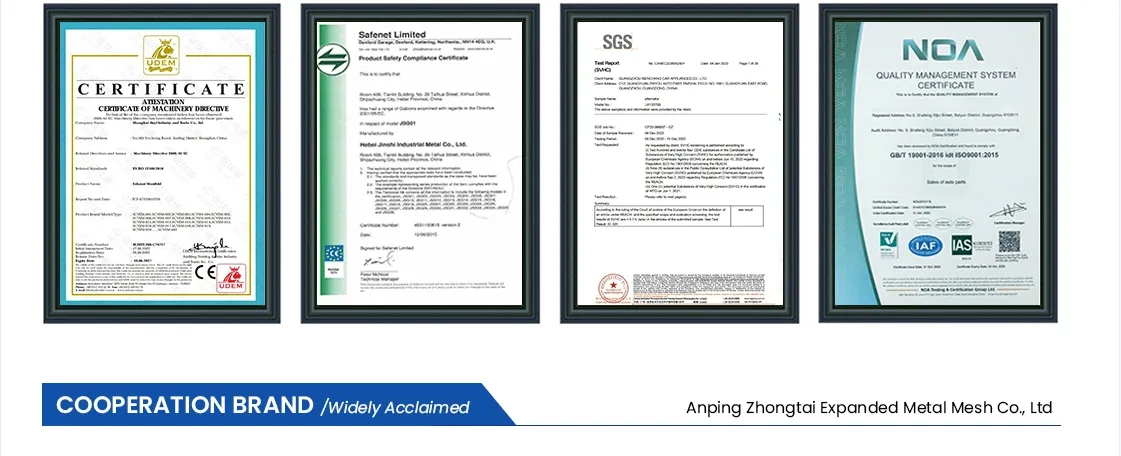Understanding Different Types of Mesh Fencing
Mesh fencing is a versatile and popular choice for a variety of applications, ranging from residential gardens to commercial properties and agricultural sites. Its benefits include visibility, airflow, security, and durability. With several types of mesh fencing available, each suited to specific needs and environments, it’s important to understand the options to select the best fit for your requirements. Here, we explore the most common types of mesh fencing.
1. Welded Wire Fencing
Welded wire fencing is composed of intersecting wires that are welded together at each junction, forming a rigid and robust structure. This type of fencing is often used for perimeter security in commercial and industrial settings due to its strength and durability. Welded wire fences can be coated with galvanized materials or vinyl to prevent rust and corrosion, extending their lifespan significantly. In residential areas, welded wire fencing is also popular for keeping pets contained and providing safety without obstructing visibility.
2. Chain Link Fencing
Chain link fencing, also known as diamond mesh fencing, is one of the most common types of mesh fencing. Made from interwoven galvanized steel wires, it creates a diamond-shaped pattern that is both strong and flexible. Chain link fencing is ideal for a wide range of applications, including sports fields, playgrounds, and building perimeters. One of its main advantages is its cost-effectiveness; it is generally less expensive than other types of fencing. Additionally, chain link can be combined with slats for added privacy or coated with a colored vinyl for aesthetic enhancement.
3. Expandable or Collapsible Fencing
types of mesh fencing

Expandable fencing is designed for temporary use, making it an excellent choice for situations that require quick setup and takedown, such as construction sites, event venues, or emergency situations. These fences often feature flexible materials that can be easily expanded or collapsed. While not as robust as welded or chain link fencing, expandable fencing serves as a practical solution for short-term needs, allowing for easy transport and storage when not in use.
4. Palisade Fencing
Palisade fencing is characterized by its vertical, pointed slats that provide a high level of security. This type of mesh fencing is commonly used in industrial and commercial areas where protection against intruders is necessary. The slats can be made from steel or aluminum, and their design inherently deters climbing. Palisade fencing can be customized in terms of height and color to meet specific security needs while still complementing the surrounding landscape.
5. Electric Fence Mesh
Electric mesh fencing combines traditional fencing materials with electric wires to create a formidable barrier. This type of fence is often used for agricultural purposes to keep livestock contained or deter predators. It's essential to ensure that electric fencing is installed correctly and adheres to safety standards to prevent accidental shocks to animals and humans alike. Many electric mesh fences come equipped with solar-powered systems for sustainability and efficiency.
Conclusion
When selecting the appropriate type of mesh fencing, it's crucial to consider the specific requirements, such as security needs, budget constraints, and aesthetic preferences. Each type of mesh fencing offers unique benefits, allowing for a tailored solution for residential, commercial, or agricultural applications. Understanding the various options available enables property owners to make informed decisions that enhance safety and functionality while complementing their environment. Whether you prioritize security, visibility, or affordability, there is a mesh fencing type perfectly suited to your needs.
-
Why Galvanized Trench Cover Steel Grating Resists Corrosion
NewsJul.10,2025
-
The Versatility and Strength of Stainless Expanded Metal Mesh
NewsJul.10,2025
-
Load Calculations in Steel Grating Platforms
NewsJul.10,2025
-
Keeping Pets and Kids Safe with Chicken Wire Deck Railing
NewsJul.10,2025
-
Hole Diameter and Pitch for Round Perforated Metal Sheets
NewsJul.10,2025
-
Aluminium Diamond Mesh in Modern Architecture
NewsJul.10,2025
Subscribe now!
Stay up to date with the latest on Fry Steeland industry news.

